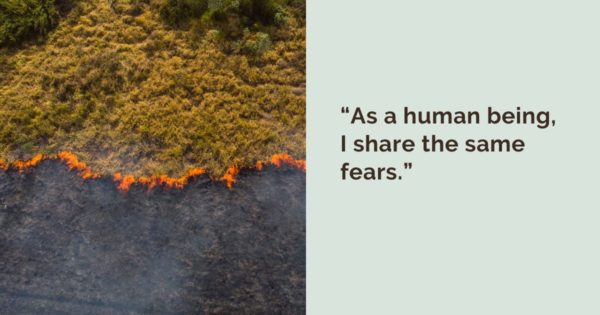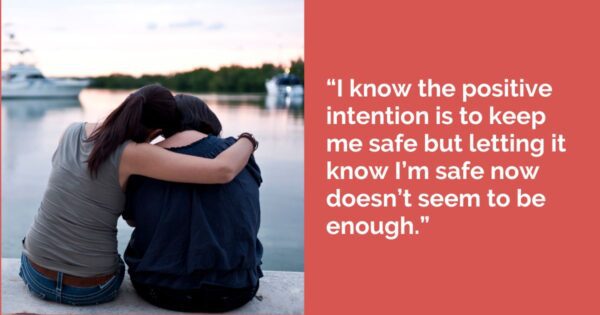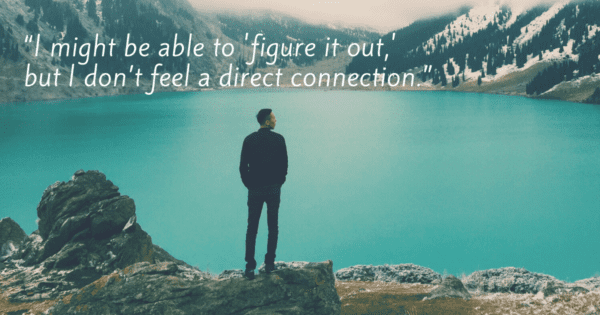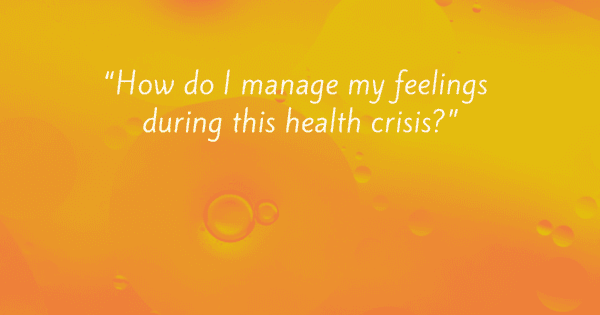“I don’t like it when someone reflects back what I’m saying.”
Robin writes: “I’m in the fourth week of a Path to Lasting Change, Part One, and last night I realized I’m not liking it when I’m the Focuser and someone is reflecting back what I’m saying. I know what you’ve said about the Focuser being in charge and what the Companion’s role is, etc. I appreciate the many aspects of what the Companion offers — the carefully worded language, not questioning or helping or judging, being present so the Focuser can be present, and much more.
“The thing is, it’s hugely difficult for me to even be saying anything out loud in the first place. When I’m trying to Focus the Companion’s words are an interruption, a distraction, an intrusion; even if the Companion is only listening carefully I’m aware of the other person. I’m not comfortable with the attention on me so it’s like I’m in the spotlight, performing, being observed, exposed. It’s like I’m telling. I know it’s supposed to be a conversation I’m having with myself — and that’s exactly what is most important to me – and this is a way of getting me to be more precise, go deeper… but it makes me feel self-conscious, that I’m having to explain and justify myself to someone else. I appreciate any insight you may have.”
Hi Robin,
Everything you’re saying here sounds so interesting, and so full of treasure.
There is something in you that is not comfortable with attention on you. Maybe you could turn toward that with interested curiosity. There is something more there, to get to know better. It’s already letting you know that it doesn’t like “being in the spotlight, performing, being observed, exposed.” And there is more, just under that.
You already know that when we speak in Focusing in is “in the presence of the Companion,” not TO the Companion. It isn’t telling at all, much less justifying or explaining. But something in you doesn’t feel it that way. So there is your “spot” — as Gene Gendlin calls it — the place where a felt sense can develop and where some rich Focusing can happen.
This is a lot more obvious if we can see each other. When I teach in person, and people can sit together in real space, this question doesn’t come up as much. Then you can see the Focuser looking downward with closed eyes, attentive to what is within, sometimes turned at a slight angle away from the Companion. It is the Focuser’s inner relationship that matters.
When you are the Focuser, I encourage you to sense from inside what feels right to say… and say only what helps YOU stay with what you feel. (You might be very silent. That’s OK! Really!) Words spoken out loud resonate through different parts of the brain, and can be felt in a fresh way. That is the purpose of speaking. Then the Companion says back those words…that makes possible a further resonating. That is the purpose of reflecting. You hear your own words, the very words you spoke because you wanted to hear them, again.
But the Companion doesn’t have to understand what you are saying. You don’t have to explain anything. Your speaking is for yourself.
“What would you like from me as your Companion?”
In our classes, we teach a partnership form that supports the maximum safety for both people. As part of that, the Companion asks the Focuser before the session starts: “What would you like from me as your Companion?”
If you are feeling sensitive to interruption, you can say, “I’d like you to be silent until I ask for a reflection.” Yes, it’s really OK to say that!
That way, you can give yourself a chance to sense from inside what it would feel like to want to hear your words spoken back to you. Not all of them, but the few important ones.
Focusing is a process of listening to yourself. Amazingly, in the presence of another person who is adding nothing, just being there, we can listen to ourselves even more deeply. And in that process, change occurs, life moves forward in the way it needs to. Nice!






